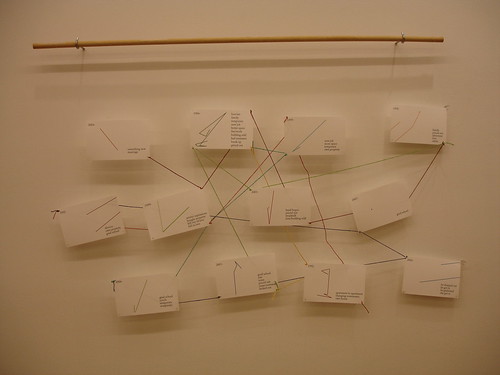
“!Mi mapa no es tu mapa!”
La frase “¡mi mapa no es tu mapa!” puede ser pronunciada principalmente de dos modos: con un tono de estrañeza, por ejemplo en el marco de una visita turística, al comprobar que el mismo espacio no está organizado del mismo modo en el mapa de quien nos acompaña. En este momento la siguiente reacción podría ser del tipo “¿Cuál es el mapa correcto, nos habremos perdido?”.
El segundo tono que podríamos utilizar para pronunciar “¡mi mapa no es tu mapa!” sería más severo o agresivo, una reafirmación que reclama una visión del espacio que otros no comparten, por ejemplo, en el contexto de los territorios palestino-israelí.
Introducción general al seminario
Estas disciplinas no se centran en el desarrollo de precisas tecnologías de posicionamiento y mapeado, sino en transformar el sentido y el contexto de ese posicionamiento. Se preocupan por describir el espacio físico no sólo mediante geografías objetivas sino también relativas, partiendo de la concepción de que un lugar nunca llega a ser ni puramente cartesiano ni puramente psicogeográfico.
Los artistas e investigadores de este seminario destapan estas desorientaciones sociogeográficas para inventar y jugar con nuevas cartografías e interfaces de localización. Son tecnologías y tácticas que recuperan el sentido de navegación como búsqueda trascendente y que transforman nuestra percepción del territorio, redibujando el mapa que lo describe con las huellas sociales ignoradas por las fotografías de satélite.
Atendiendo a este panorama de conflicto en la representación del territorio con nuevos medios, el seminario centrará el debate en estas cuestiones específicas:
· Estrategias, herramientas y ejemplos de remapeado subsersivo.
· Evidenciando, explotando o conciliando discrepancias en el mapeado colaborativo de Internet.
· Alterando la percepción del entorno físico: tácticas e interfaces híbridas.
Una cita ineludible para los interesados en las estratégias desde la cartografía con conferencias y talleres en este seminario.
Toda la info en Arteleku.



